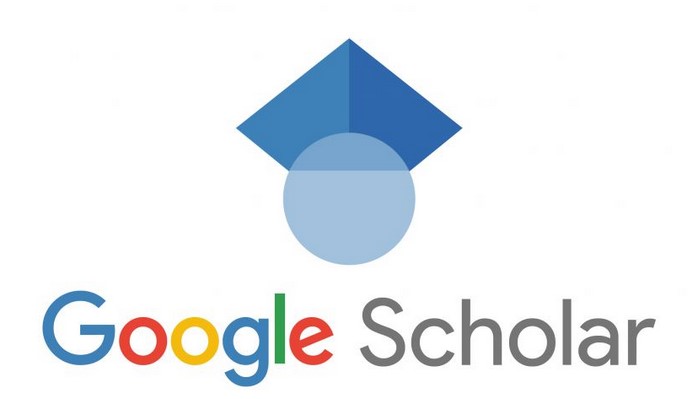Document Type
Article
Abstract
This paper to provide an explanation of the ideology that fights for human dignity and the formation of an imaginary or utopian society. The ideology adopted is the political ideology of anarchism and liberalism which both fight for equal rights and freedom. The two ideologies do have different histories or intricacies, but in this paper they will become a tool for human beings living in a country to maintain their dignity as owners of the right to life. And also the formation of an ideal that is often referred to as a utopia or an imaginary society in the midst of the development of increasingly advanced science and technology. The state is an enigma or a mystery. One of the mysteries is human dignity and utopian society which will be raised in this paper
First Page
21
Last Page
31
Page Range
21-31
Issue
1
Volume
19
Digital Object Identifier (DOI)
10.21831/jc.v19i1.47395
Source
https://journal.uny.ac.id/index.php/civics/article/view/47395
Recommended Citation
Dewantara, J. A., Syofianti, R., & Arifiyanti, F. (2022). An enigma of a country human dignity and utopic society. Jurnal Civics: Media Kajian Kewarganegaraan, 19(1), 21-31. https://doi.org/10.21831/jc.v19i1.47395
References
Adonina, A., Akhmedova, E., & Kandalova, A. (2018). Realization of smart city concept through media technology in architecture and urban space: From utopia to reality. MATEC Web of Conferences, 170, 1-7. https://doi.org/10.1051/matecconf/201817002013
Ahida, R. (2005). Liberalisme dan komunitarianisme: Konsep tentang individu dan komunitas. Jurnal Demokrasi, 4(2), 95-106. http://ejournal.unp.ac.id/index.php/jd/article/view/1063
Amir Piliang, Y. (2013). Budaya teknologi di Indonesia: kendala dan peluang masa depan. Jurnal Sosioteknologi, 12(28), 247-262. https://doi.org/10.5614/sostek.itbj.2013.12.28.1
Ananta, M. H. (2021). Representasi anarkisme dalam film " mosi tidak percaya " karya Watchdoc Documentary. UIN Sunan Ampel Surabaya.
Anggrian, Y. (2017). Konsepsi organisasi dan kepemimpinan dalam paham anarkisme (Studi analisis: Gerakan Zapatista Meksiko). Universitas Sumatera Utara.
Asri, Y., & Ni, D. (2020). Manusia menurut Plato dalam perspektif Vendanta. SANJIWANI: Jurnal Filsafat, 11(1), 82-92.
Azhar, M. (1999). Filsafat Plato: Tentang idea, hermeneutika dan internet. Idea, 5, 76.
Azmi, A. (2013). Individualisme dan liberalisme dalam sekularisme media Amerika. Jurnal Ilmiah Ilmu-Ilmu Humaniora, XII(July), 1-23. https://doi.org/https://doi.org/10.24036/jh.v12i1.3102
Bakar, M. Y. A. (2012). Pengaruh paham liberalisme dan neoliberalisme terhadap pendidikan Islam di Indonesia. TSAQAFAH, 8(1), 135-160. https://doi.org/10.21111/tsaqafah.v8i1.22
Berkman, A. (2001). Anarkhisme & revolusi sosial. In M. Z. Hussein (Trans.), Teplok Press. Teplok Press.
Cahya, M. F. N. (2015). Fenomenologi anarkisme. Jurnal Unair, 4(1), 1-10. http://journal.unair.ac.id/Kmnts@fenomenologi-anarkisme-article-9567-media-135-category-8.html
Fauziah, L., & Hosnan, M. (2019). Liberalisme dalam pendidikan Islam. JJPIK: Jurnal Pemikiran Dan Ilmu Keislaman, 1(2), 420-436. https://jurnal.instika.ac.id/index.php/jpik/article/view/94
Grossi, G., & Pianezzi, D. (2017). Smart cities: Utopia or neoliberal ideology? Cities, 69, 79-85. https://doi.org/10.1016/j.cities.2017.07.012
Hakim, A. (2010). Negara dalam perspektif Plato. Jurnal Ilmiah Ilmu Ushuluddin, 9(1), 59-74. https://doi.org/10.18592/jiiu.v9i1.1410
Hardiyati, M. (2020). Sejarah perkembangan ilmu dunia barat. Prosiding Konferensi Integrasi Interkoneksi Islam Dan Sains, 2, 11-16. https://doi.org/10.31227/osf.io/fykwh
Jannah, H. (2019). Tinjauan psikologis tentang anarkisme dan Bughat. Jurnal Psikologi Terapan, 2(1), 14-18. https://ojs.unimal.ac.id/jpt/article/view/3625
Juhaidi, A., & Umar, M. (2020). Pernikahan dini, pendidikan, kesehatan dan kemiskinan di indonesia: Masihkah berkorelasi? Khazanah: Jurnal Studi Islam Dan Humaniora, 18(1), 1-24. https://doi.org/10.18592/khazanah.v18i1.3585
Junaidi, A. (2015). Internet of Things, sejarah, teknologi dan penerapannya: Review. Jurnal Ilmiah Teknologi Informasi, 1(3), 62-66. https://doi.org/https://doi.org/10.33197/jitter.vol1.iss3.2015.66
Lidinilah, I. H. (2020). Teori idea Plato. JAQFI: Jurnal Aqidah Dan Filsafat Islam, 5(1), 68-82. https://journal.uinsgd.ac.id/index.php/jaqfi/article/view/6859
Luthan, S. (2012). Dialektika hukum dan moral dalam perspektif filsafat hukum. Jurnal Hukum IUS QUIA IUSTUM, 19(4), 506-523. https://doi.org/10.20885/iustum.vol19.iss4.art2
Novianti, N. (2010). Unsur utopia dalam 3 novel kontemporer Jepang karya Jiro Akagawa. Humaniora, 1(2), 645. https://doi.org/10.21512/humaniora.v1i2.2906
Rahayu, T. (2016). Kota kreatif: Utopia ataukah distopia? SMART: Seminar on Architecture Research and Technology, 1, 3-15.
Rosen, S. (2006). Plato's Republic: A study (Vol. 43, Issue 07). Yale University Press. https://doi.org/10.5860/CHOICE.43-4309
Sibuea, H. P. (2014). Buku referensi ilmu negara. In Kementrian Hukum dan Asasi Manusia Direktur Jenderal Kekayaan Intelektual. (pp. 1-341).
Silitonga, T. B. (2020). Tantangan globalisasi, peran negara, dan implikasinya terhadap aktualisasi nilai-nilai ideologi negara. Jurnal Civics: Media Kajian Kewarganegaraan, 17(1), 15-28. https://doi.org/10.21831/jc.v17i1.29271
Smith, R. K. M. S., Høstmælingen, N., Ranheim, C., Arinanto, S., Falaakh, F., Soeprapto, E., Kasim, I., Rizki, R. M., Marzuki, S., Agus, F., Yudhawiranata, A., Sudjatmoko, A., Pradjasto, A., Eddyono, S. W., & Riyadi, E. (2008). Hukum Hak Asasi Manusia (HAM). Pusat Studi Hak Asasi Manusia Universitas Islam Indonesia: Yogyakarta.
Tolchah, M. (2016). Pendidikan dan faham liberalisme. At-Ta'dib, 3(2), 163-178. https://ejournal.unida.gontor.ac.id/index.php/tadib/article/view/563
Vieira, F. (2010). The concept of utopia. In G. Claey (Ed.), The Cambridge companion to utopian literature (pp. 3-27). Cambridge University. https://doi.org/10.1017/CCOL9780521886659.001
Wahyudi, M. N. (2021). Epistemologi islam di era modern: Studi analisis pemikiran Feyerabend tentang anarkisme epistemologi. Almahra: Jurnal Studi Islam, 2(2), 134-148. http://jurnalnasional.ump.ac.id/index.php/Alhamra/article/view/11791
Wijaya, D. N. (2016). Kontrak sosial menurut Thomas Hobbes dan John Locke. Jurnal Sosiologi Pendidikan Humanis, 1(2), 183-193. https://doi.org/10.17977/um021v1i22016p183



